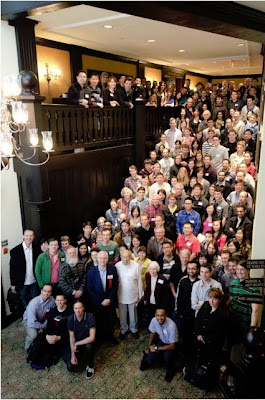There is a growing acknowledgement that STEM education, at all levels, is not producing learners with a deep understanding of core disciplinary concepts [1]. A number of efforts in STEM education reform have focused on the development of ‘‘student-centered’’ active learning environments, which, while believed to be more effective, have yet to be widely adopted [2]. What has not been nearly as carefully considered, however, is the role of the curriculum itself as perhaps the most persistent obstacle to effective science education. It is now time to examine not only how we teach, but also what we teach and how it affects student learning.This is an important point. Most of the science education reforms that are being proposed these days focus on style rather than substance.
In the long run, it really doesn't matter whether you are employing the very latest pedagogical techniques if what you are teaching is crap.
But we also need to recognize that there's a relationship between what we teach and how we teach it. If you want to teach scientific thinking—as opposed to memorizing pathways—then there may be superior ways to do it.
Recognizing how challenging it is to build scientific understanding requires that we recognize that scientific thinking, in and of itself, is by no means easy and is certainly not ‘‘natural.’’ We are programmed by survival based and eminently practical evolutionary processes to ‘‘think fast’’ [8]. In contrast, scientific thinking is slow, hard, and difficult to maintain. If students are not exposed to environments where they must practice and use the skills (both metacognitive and procedural) that they need to learn, they may fall back on fast, surface level answers, and fail to recognize what it is that they do not understand.Scientific thinking (and critical thinking) have to be experienced and practiced. That means you have to make time for that in your course.
Klymkowsky, M.W. and Cooper, M.M. (2012) Now for the hard part: The path to coherent curricular design. Biochemistry and Molecular Biology Education 40:271–272. [doi: 10.1002/bmb.20614]













